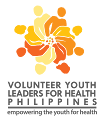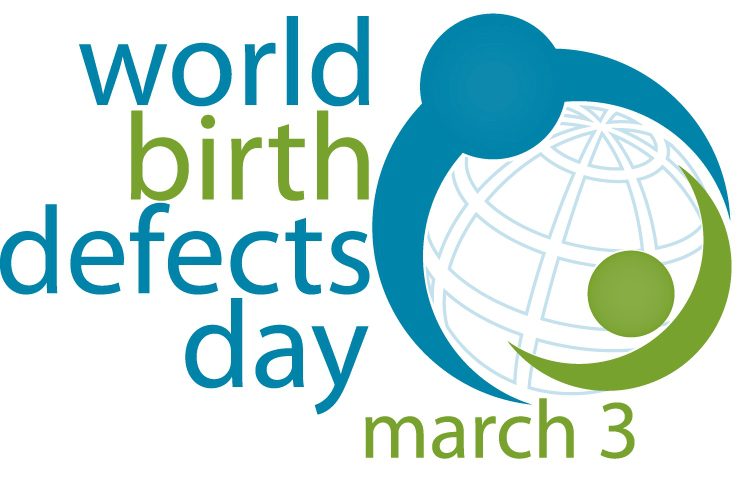WorldBDday MEDIA RELEASE
Health Promotion and Advocacy Update
Series of 2016
Every year nearly 8 million babies around the world—6 percent of all births (1 in 33 babies)—are born with a serious birth defect. It is also estimated that around 3.3 million children less than 5 years of age die annually because of serious birth defects. In many countries, birth defects are one of the leading causes of death in infants and young children. In the Philippines, congenital anomalies rank among the top 20 causes of death across the life span and are the third leading cause of death in the infancy period. Babies who survive and live with these conditions are at an increased risk for long-term disabilities. The effects of birth defects are not only limited to individuals and their families since these conditions also impact their communities, and all of us.
To increase global awareness on these conditions, a growing network of local and international organizations have jointly observed and dedicated the 3rd day of March as "World Birth Defects Day"
What is World Birth Defects Day?
Held every
3rd day of March, World Birth Defects Day (WorldBDday) is a global campaign to raise awareness on birth defects and expand birth defects surveillance, prevention, care, and research worldwide. The event was launched on
March 3, 2015 by a consortium of twelve international organizations which include the March of Dimes and the International Clearinghouse for Birth Defects Surveillance and Research (ICBDSR) and the US Centers for Disease Control and Prevention (US CDC). This is in response to the
2010 World Health Assembly resolution (EB126.R6) urging member states to raise awareness and develop programs for the prevention and care of birth defects.
Specifically, The observance of World Birth Defects Day is grounded on five goals namely:
- to increase global awareness about the occurrence of birth defects;
- to increase awareness of available treatment services;
- to expand referral and care services for all persons with birth defects;
- to increase implementation of programs to prevent birth defects; and
- to encourage the public, governmental agencies, non-governmental organizations, and healthcare providers to improve the care of affected children.
About WorldBDday-Philippines
During the launch of World Birth Defects Day last year, the Philippines' participation was initiated by VYLH-Philippines as it joined and promoted the World Birth Defects Day Thunderclap. This act helped in placing the Philippines among the 34 identified countries where supporters of the social media campaign came.
This 2016, the ICBDSR coordinated with UP Manila Chancellor Dr. Carmencita Padilla and suggested the inclusion of representative agencies to the global partners of WorldBDDay, including VYLH-Philippines. With this, the WorldBDDay-Philippines Secretariat was formed by the collaboration of three organizations and the Newborn Screening Centers (NSCs) in the country:
- Institute of Human Genetics-NIH, University of the Philippines Manila
- Volunteer Youth Leaders for Health-Philippines
- Newborn Screening Reference Center-NIH, University of the Philippines Manila
- Newborn Screening Centers (North Luzon, NIH, Southern Luzon, Visayas and Mindanao)
The Philippine WorldBDday Theme
As agreed during the first meeting of WorldBDday-PHL partners on January 20, 2010, a local theme will be formulated in order to get the attention of the public and establish a connection among Filipinos. This year which is also the first formal observance of WorldBDday in the country, WorldBDday-PHL will be observed with the theme, "Sa Sama-samang pagkilos at pagkalinga, Sa Birth Defects, Tayo ay may magagawa" (“Responding to Birth Defects through Collective Action and Better Care”).
Sama-samang Pagkilos refers to our collective efforts channeled through various activities such as birth defects prevention through health promotion, advocacy and awareness campaign activities, birth defects surveillance and research. These activities are important in promoting public awareness on birth defects - a common, costly, and critical public health challenge.
- Health Promotion and Birth Defects Prevention. With some birth defects preventable through lifestyle changes and healthier choices prior and during preganancy, there is a need to increase the awareness of future parents on such strategies that will provide each baby a great and healthy start.
- Birth Defects Surveillance. Birth defects surveillance is important in finding and collecting information about the prevalence and possible causes of birth defects. The data from birth defects tracking systems are useful to public health officials, policymakers, and scientists. Still, there is a need to intensify birth defects surveillance in the country.
- Research. With the causes of most birth defects remaining unknown, supporting birth defects research is important in order to determine underlying causes and develop measures for birth defects prevention.
Pagkalinga corresponds to healthcare services made available to persons with birth defects and the support given to patient families. Persons living with serious birth defects may suffer lifetime disability but good quality healthcare services can improve their quality of life.
Sa Birth Defects, Tayo’y May Magagawa is an affirmation that it is never too late to act on birth defects. We can still do something on birth defects. This statement also relates to existing and future programs by the government and civil society organizations that would support the prevention of preventable birth defects, and improve the welfare of persons with birth defects through better care.
The Success of the first WorldBDday in Social Media
On the ground and online activities were done before and during the first WorldBDday (March 3, 2015). In social media, #WorldBDday was launched as the official hashtag for the campaign. The Twitter-sphere was all aglow last March 3, 2015 for the first-ever World Birth Defects Day. In fact, 6,154,146 people were reached worldwide from February 6 to March 4, 2015. More than half of these were obtained during World Birth Defects Day (March 3) through the the Twitter BuzzDay and the WorldBDday Thunderclap, one of the important metrics of the campaign.
The first WorldBDday Thunderclap was hosted by the March of Dimes and it contributed to the total social media reach of the campaign. Thunderclap is the first-ever crowdspeaking platform that helps people be heard by saying something together. Similar to an "online" flash mob, Thunderclap allows supporters of a campaign to share a single message at the same time thru various social media platforms (e.g. Facebook, Twitter and Tumblr). The first Thunderclap was able to gain 544 supporters from 34 countries and reach 1,101,843 people worldwide.
 |
| More than half of the campaign social media reach came from the Twiter BuzzDay and the Thunderclap. Photo: ICBDSR |
How can you support #WorldBDday?
1. Be active on social media and use #WorldBDday
2. Support the Global Thunderclap
3. Join the Twitter Buzzday on March 3
An international media toolkit on WorldBDday was made available by the ICBDSR. Download a copy of the
WorldBDday Toolkit [LINK]
For interested institutions and organizations in the Philippines, you may contact the WorldBDday-PH Secretariat (worldbddayph@gmail.com) to learn more on how to become a PHL partner organization.
Quick Guide on Joining the WorldBDday Thunderclap
2. Click "Support with Facebook" and/or "Support with Twitter"
3. Click
"Add My Support"
4. Click
"Authorize App" to allow Thunderclap to post the message on your behalf.
In Facebook, it asks to access your "Friend List". According to the FAQ, Thunderclap needs to access your "Friend list" in order to calculate social reach for Facebook. The app assures campaign supporters that it will never interact with your friends' accounts, store their information, or post on their behalf.
After these, Thunderclap will be able to publish the WorldBDday post on your timeline on March 3.
To learn more about Thunderclap, visit https://www.thunderclap.it/faq
Go Social #WorldBDday: Suggested Tweets and Posts
Support the #WorldBDday campaign by sharing your personal thoughts or by posting any of the suggested posts on Facebook and Twitter. Do not forget to use the hashtag #WorldBDday (not case sensitive) to your tweets.
I’m ready to raise awareness on March 3 because birth defects are common, critical and costly! #WorldBDday
Join me March 3 to promote World Birth Defects Day to improve prevention and research worldwide #WorldBDday
On March 3 let’s spread the word – every child born with a birth defect has the right to have a full and happy life #WorldBDday
Birth defects may result in long-term disability, placing a huge burden on families & health-care systems around the world #WorldBDday
Birth defects survivors may suffer lifetime disability but good health care services may improve their quality of life. #WorldBDday
Did you know that 1 in 100 newborn has a heart defect? #WorldBDday
Birth defects affect 1 in 33 infants and result in approximately 3.2 million birth defect-related disabilities every year #WorldBDday
Too few countries have a birth defects surveillance program. Why not in all countries? #WorldBDday
An estimated 270,000 newborns die during the first 28 days of life every year from birth defects #WorldBDday
Did you know? Intake of 400 micrograms of folic acid daily can prevent occurrence of neural tube defects (NTD) by up to 70% #WorldBDday
Did you know? Taking folic acid supplements is the only neural tube defect (NTD) prevention method proven to date #WorldBDday
In PH, congenital anomalies are among the top 10 causes of infant mortality for the past 50 years (DOH) #WorldBDday
The existing birth defects surveillance project in the PH is led by the Institute of Human Genetics,NIH-UP Manila @IHGenetics #WorldBDday
Currently, newborn screening in the PH can detect up to 28 disorders #NBSsaves @newbornscreenph #WorldBDday
Babies with metabolic disorders look normal at birth. Some Inborn errors of metabolism are detected through newborn screening #WorldBDday
Alam mo ba? Ilan sa mga birth defects ay maiiwasan sa pagsagawa ng akmang hakbang bago magbuntis at habang nagbubuntis #WorldBDday
Paigtingin ang National Surveillance System ng birth defects sa Pilipinas! #WorldBDday
Join the Twitter BuzzDay on March 3
On March 3, share your story about the impact of birth defects on you, your child or someone you know. With our partners, we’ll be urging policymakers, researchers, health care providers and citizens across the globe to help improve birth defects surveillance, prevention, care, and research worldwide.
Plan to post one or more messages using #WorldBDday at some point during the day. Everyone is also invited to retweet both promotional and day-of messages to build the buzz for the day.
Download Materials and Update Your Social Media Profile
In preparation for WorldBDday, we would like to invite our partners to update their social media profile (Facebook Profile Picture and Cover Photo), and banner templates for partners.
Suggested Facebook Profile Pic and Cover Photo
https://www.dropbox.com/sh/3ojwo4foocsquor/AABmGEudRyE9gZVGmoqlBvS6a?dl=0
Fansigns
https://www.dropbox.com/sh/uy7wzlnghm2hafd/AADo7s6QVfmbZCebKXzvFbTqa?dl=0
Poster and Banner Templates
https://www.dropbox.com/sh/82b3rgch9cqdlbj/AABIdy3_BnQshMCCe24wnuCQa?dl=0
Media Toolkit
https://www.dropbox.com/sh/4eyfcgl1hcbm7wv/AAB9ZQo7SBBAXo27r6hsxj0Fa?dl=0
Presentations
https://www.dropbox.com/sh/6ne4tkaiioap5a4/AAC2piODSmk42GGZQQ9dcKeZa?dl=0
Learn more about Birth Defects
Birth defects refer to any structural or metabolic abnormality most often present at birth, identified prenatally (before birth) or later in life. The International Clearinghouse for Birth Defects Surveillance and Research (ICBDSR) prepared a Powerpoint Presentation on Birth Defects,
get a copy through this link [LINK].
To learn more about birth defects (congenital anomalies), here are
some recommended pages to visit:
Contact Us! Coordinate with the WorldBDday-PHL Secretariat
Interested parties may contact the WorldBDDay-Philippines Secretariat through the Institute of Human Genetics (Tel. 526-1725/310-1780 loc 108/Fax 526-9997/email worldbddayph@gmail.com) and the
WorldBDday Philippines Facebook Page (fb.com/worldbddayph).# (RPascual)




























































